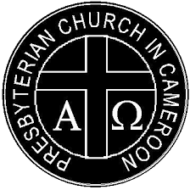About Us
1925 - 1952 (Inception of PTS )
In 1925 the Basel missionaries resumed their work in the Southern Cameroons and one of their agenda consisted in reopening the former Seminary. This took place in 1931, with Nyasoso as the new location. Thereafter it was called the Catechist Training Institute (CTI). It is this CTI that would finally evolve into the Presbyterian Theological Seminary passing through a number of stages as often as the Church saw the need to upgrade the level of the pastors consequent upon the need for more qualified personnel.
When the Second World War disrupted that process of ministerial formation bringing it to a temporary halt, a first so-called Theological Course was offered in 1946/47 to provide thorough theological training for some chosen evangelists in the field. While this exercise was considered as inadequate it nonetheless helped to revive the vision for the creation of a fully-fledged theological school for the training of pastors. After careful planning and preparation the Theological Training Centre was opened on the 1st June 1952 in Nyasoso. This date is fondly considered as the founding date of the Presbyterian Theological Seminary (PTS) Kumba. The Theological studies offered at the Theological Training Centre was structured as a three year programme. It was made up of the classical theological disciplines: Old Testament, New Testament, Church History, Systematic Theology, and Practical Theology. Attached to these theological courses were also African Traditional Religion and Islam. With a few adjustments and changes this has remained the basis of the curriculum up till now.
1952 - 2015 (Relocation from Nyasoso to Kumba)
The period from 1952 to 2015 has witnessed quite a number of modifications, worthy of note. Not only has there been a geographical change in the location of the school from Nyasoso to Kumba since the 10th April 1988, there have also been several institutional and curricular adjustments. In 1955 the Centre started its own entrance examinations in order to be able to select the most suitable candidates for the ministry. A small library was introduced in 1957, which over the years has grown and now holds more than 20,000 books; it was later expanded from 1960 with the donation of text books by our partners to students that allowed them create their own small libraries to enhance their scholarship.
The overall administration and governance of the school from 1957 (effectively 1958) was done by the Theological Board; now transformed and known as The Administrative Council. Since then, a number of changes have taken place:
- The then Theological Board authorised the introduction of a new four year programme which ran from 1963 to 2001. The aim was to introduce more subjects in order to broaden the scope of the students after training.
- This was replaced with a three year programme which was introduced in 1999. The three years programme followed a review of the entire curriculum in line with the basic university requirements for a Bachelor degree.
- The three year programme was reviewed and expanded into a five-year progamme for the award of the degree of Master of Divinity (MDiv), starting 2014.
- For some technical and logistical reasons, the MDiv programme did not go to the end, and was reduced to the normal Bachelor degree programme.
